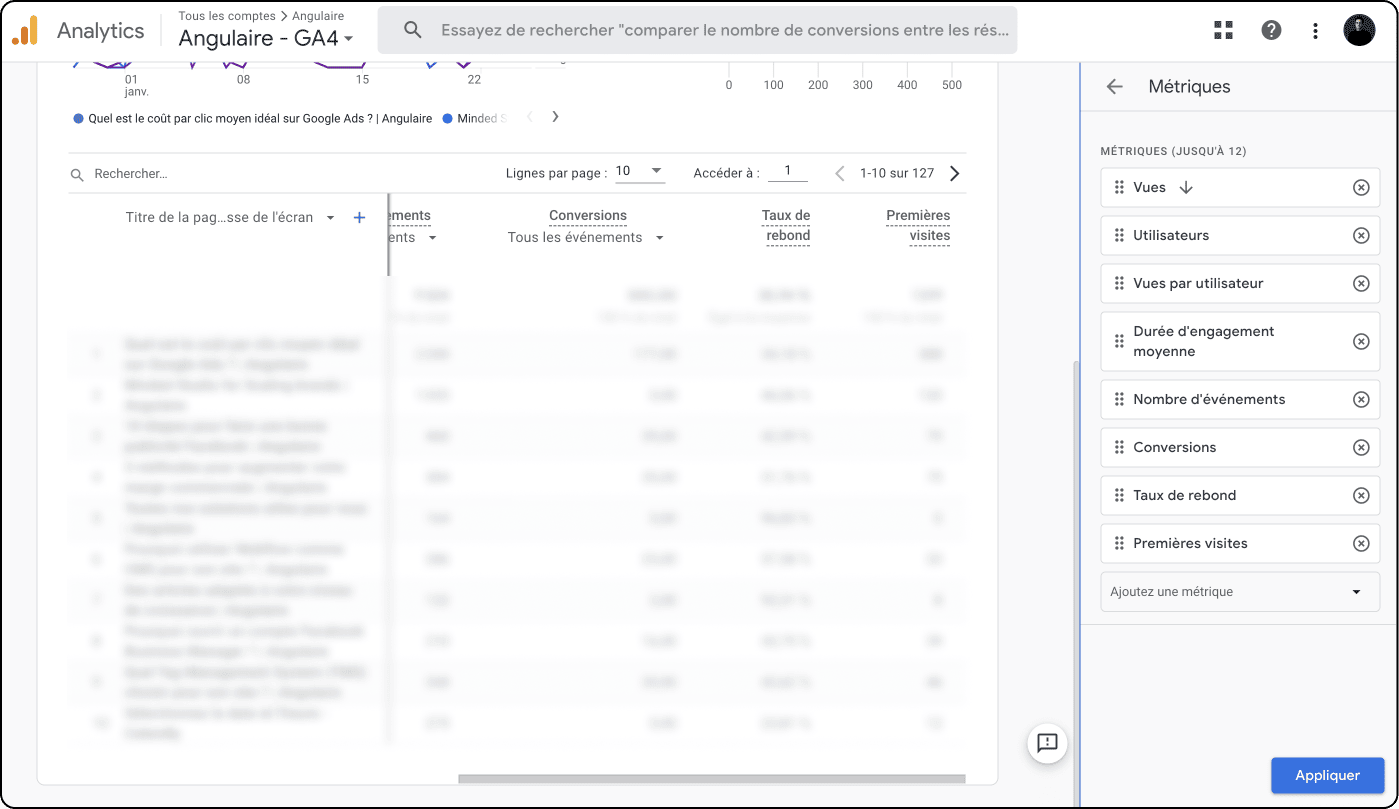In 2019, Google introduced The arrival of Google Analytics 4, a new tool and a real update to Universal Analytics. Users saw the option of choosing between creating a standard analytics property or setting up a GA4 property.
Recently, Google officially announced Close the Universal Analytics service in 2023, and thus encourage all users to use Google Analytics 4. That said, users will still be able to view historical data, but will no longer be able to perform actions on the property or create a new standard property.
If you use Universal Analytics and if you haven't taken the plunge yet, it's important to understand what GA4 offers and how it differs from Universal Analytics.
Google has announced the changeover date to July 1, 2023, so you still have some time to get familiar with this new tool and make the change before the old version stops working.
Through this article, we try to answer all your questions.
Why is Google ending the Universal Analytics service?
Over the past decade, Google Universal Analytics (UA) is the flagship tool for measuring the performance and engagement of websites. Among the numerous traffic analysis tools, according to studies, G-UA would 86% market share. In other words, the tool is essential for many people and businesses.
However, the platform was initially designed at a time when mobile did not have such an important part in generating traffic. Although the version Universal Analytics can also measure data for mobile and applications, it does not offer a unified experience for properties across multiple channels.
This evolution of use has prompted Google to evolve its analysis tool, in order to make it more complete for cross-channel coverage.
{{cta-migrer-ga4=” /cta "}}
Introduction to Google Analytics 4
For a long time, Universal Analytics analysis focused on measuring a computer's web parameters. Mobile data was practically not taken into account.
From now on, Google Analytics 4 brings a new perspective by unifying several types of properties in the user journey.
GA4: a version that complies with the RGPD?
Another essential aspect of Google Analytics 4 is that it does not rely solely on cookies. It offers an increased focus on confidentiality of users and their personal data.
The RGPD has had a major impact on how websites and applications can legally collect and store user data. The GDPR is also one of the main reasons for the change to GA4.
Cookies have come under fire in recent years due to growing privacy concerns. This means that many businesses are looking for alternative data collection flows.
With Google Analytics 4, the measurements are no longer based on The sessions. The platform is capable of recognizing and measuring several types of events and human interaction, including:
- Pages viewed
- Page scrolls
- Outbound clicks
- Site searches
- Video engagement metrics
- File uploads
- Form submissions
With Universal Analytics, the measurement of these indicators required the manual configuration of events that were sometimes complex depending on the technology. Now, the platform can do Automatically escalate events for you, giving you access to more data from the start.
Another point, GA4 can be connected to Google Ads (formerly Google AdWords) in order to provide more information about users, and therefore obtain better results on your campaigns. It is also recommended to use GA4 audiences in Google Ads, for remarketing in particular.
The customer journey at the heart of Google Analytics 4 reports
Finally, Google Analytics 4 offers better analytics reports, including cross-platform analytics. You can use the platform to identify key stages in the customer journey and see where users are entering and leaving. The service also allows you to understand what users are doing between stages of the funnel.
Events and conversions on GA4
Although the transition to Google Analytics 4 is relatively simple and fast, it is important to take the time to configure Google Analytics 4 in depth.
Admittedly, GA4 automatically sets up a tracking of several types of events when you configure it for your website. However, the platform is really more effective when you take the time to set up custom events and reports.
If you don't set up Google Analytics for custom event tracking, you are missing out on what is perhaps the most powerful feature on the platform. With custom events, you can gather data on the metrics that matter most to you, without having to add custom code to your site.
Here is a list of custom events that can be deployed on a GA4 property:
- add_payment_info
- add_to_cart
- Begin_Checkout
- file_download
- Generate_Lead
- Login
- Purchase
- Sign_Up
- view_cart
- Etc.
Once an event is set up, it's up to you to choose whether or not you want to include it in the conversions. This action allows you to include only what matters most to you, for example, Purchase in the case of an e-commerce site, or the Generate_Lead for the purpose of generating leads.
Not to mention all the more classic events that can be found on the pages and screens, such as:
- Sessions
- Views per user
- Duration of the session
- Number of events
- Number of conversions
- Bounce rate
- First visits
- Etc.

Analysis reports on GA4
The reports of Google Analytics provide a good basis for analyzing the audience of your website, but they are quickly limited. For the platform to provide you with deeper insights into customer behavior, you need to set it up so that it tracks the specific events you want and displays that data in the way you need it.
Google Analytics 4 makes this process relatively easy, depending on the type of events you want to track. However, even after setting up custom reports, it may take some time for the exact numbers to appear on your dashboard. This is because Analytics 4 uses the Machine learning to improve the way it presents information.
There are often differences in relationships between Universal Analytics and Google Analytics 4. One of the most common complaints among new users of Google Analytics 4 is that the numbers you see in your dashboards may not match your Universal Analytics property. This difference is due to the fact that GA4 uses a data and attribution model. While Universal Analytics relies on cookies and sessions, G-Analytics 4 tails The events.
For now, you can rely on data from both services to inform your decisions. However, you will have to get used to the approach ofAnalytics 4 as the Universal Analytics withdrawal date is approaching.
How do I install the GA4 tag?
If you are using a solution from Tag management, it is very easy and fast to get your GA4 code for your website. Use Google Tag Manager is in fact the most effective way, we strongly recommend it.
All you need to do is configure the configuration tag in GTM and to configure it so that it is activated on all pages (or to integrate it via your consent tag for the GDPR).
You will need the data flow measurement ID for your GA4 property that you can find in Administration > Data flow > Choose your data feed.
If you use a CMS like Wordpress, Shopify, Joomla, you can easily find extensions that allow you to install GA4 on your site. It is also possible to go directly through the code editor of your CMS solution.
{{cta-installer-ga4=” /cta "}}
The suite for Google Analytics
The transition to Google Analytics 4 was not without a hitch. The arrival of the new platform has been criticized among the community. However, if you're using Google Analytics, it's essential to start getting familiar with it. Google Analytics 4, even if you continue to use Universal Analytics for the time being.
Remember that in July 2023, Universal Analytics will stop collecting data. You should therefore install a new property as quickly as possible. Google Analytics 4 in order to have sufficient comparative data.
To get the most out of Google Analytics 4, we also recommend taking the time to set up custom events and reports for your property.
If you lack the time, or the knowledge to go further on this subject, we can assist you in migrating to Google Analytics 4.
